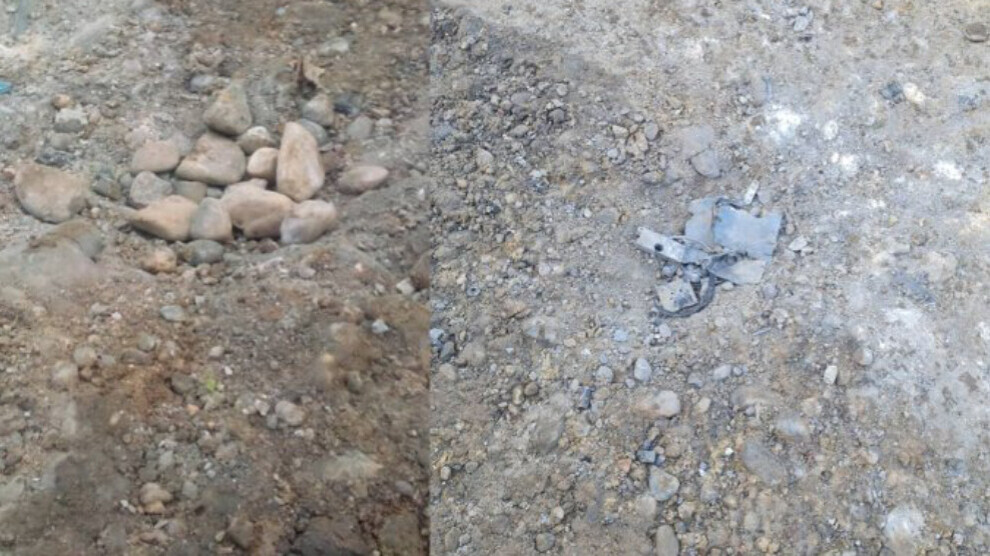Turkish bombing injures a child and a woman in Dêrik
The Turkish state continues its attacks against North-East Syria, directly targeting civilian settlements and population.
The Turkish state continues its attacks against North-East Syria, directly targeting civilian settlements and population.

The invading Turkish state once again shelled a civilian settlement in North-East Syria on Friday.
The attack targeted a house in the Azadî neighborhood of the Dêrik city in Qamishlo Canton. 11-year-old Ehmed Şahîn and 39-year-old Evîn Xelîl were injured in the attack and hospitalized.
On 5 October, Turkey carried out its heaviest attacks on civilian infrastructure in northeastern Syria for a long time. Numerous armed drones and fighter jets entered the autonomous region's US-controlled airspace and bombed vital facilities such as substations and electricity distribution stations, water pumping stations, oil and gas production facilities as well as petrol stations, dams, factories, a camp for displaced persons and several villages. Among other things, the energy infrastructure of Hesekê, Qamişlo and Amûdê was destroyed, and large parts of the regions are cut off from electricity.
The wave of attacks came after Turkish Foreign Minister Hakan Fidan named "the infrastructure of the Kurdistan Workers' Party (PKK) and the People's Defence Units (YPG) in Iraq and Syria as legitimate targets" and claimed that the two guerrilla fighters involved in the sacrificial action against the Interior Ministry in Ankara on 1 October had been trained in northern Syria and had entered Turkey from there via the highly secured border.
The Autonomous Administration of North and East Syria (AANES) submitted a dossier about the crimes committed by the Turkish state forces during the latest wave of attacks against North-East Syria.
According to the dossier, the Turkish state carried out 304 air and ground attacks on 224 locations, which included 211 attacks by artillery and heavy weaponry, and 83 strikes by drones and fighter jets.
The attacks were directed against gas and oil facilities/fields, power plants, water stations, healthcare centers, as well as the vicinity of the Washukani and Roj Camps, and dozens of villages, causing massive material damage. 47 people lost their lives, including 5 from the Kobanê, and 55 others were injured as a result of the attacks. The material damage to the infrastructure in the region is estimated at 56 million dollars.
In a statement on 26 October, Human Rights Watch (HRW) said that drone strikes by Turkish Armed Forces on Kurdish-held areas of northeast Syria between October 5 and 10 damaged critical infrastructure and resulted in water and electricity disruptions for millions of people.
"By targeting critical infrastructure across northeast Syria, including power and water stations, Turkey has flouted its responsibility to ensure that its military actions do not aggravate the region's already dire humanitarian crisis,” said Adam Google, deputy Middle East director at Human Rights Watch. “People in al-Hasakeh city and its surroundings, already facing a severe water crisis for the past four years, must now also bear the brunt of increased bombardment and destruction, exacerbating their struggle to get essential water supplies,” HRW stated.
According to the autonomous administration, damage to infrastructure caused by attacks that took place between October 5 and 10 impacted an estimated 4.3 million people in northeast Syria with at least 18 water pumping stations and 11 power stations rendered non-operational.